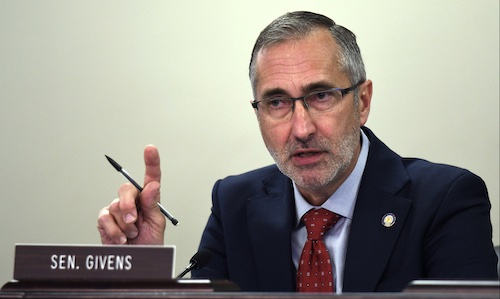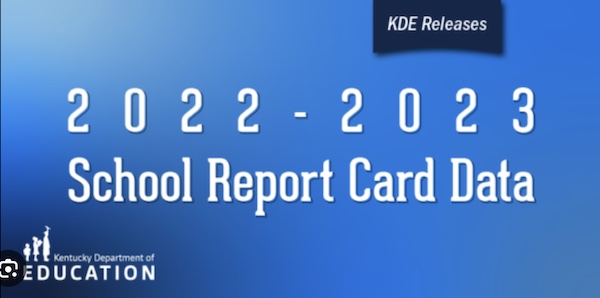Nov. 1, 2023
Legislators receive results of annual ‘school report card’
FRANKFORT — The Interim Joint Committee on Education reviewed results Wednesday from the annual ‘school report card,’ a much-anticipated snapshot of public education and student performance in Kentucky schools.
The Kentucky Department of Education (KDE) released the new report – required by state and federal law – on Tuesday night. Overall, it shows that during the 2022-23 academic year, fewer than half of public schools scored at proficient or above in major content areas, including reading, math, science and social studies.
The report also showed that the state’s composite ACT score has climbed since the 2020-21 academic year, but remains below the level measured in 2019-20.
Rhonda Sims, associate commissioner of KDE’s Office of Assessment and Accountability, summed up the year-over-year results, saying that elementary schools have consistently moved forward, middle schools have seen slight improvement in most areas, and high schools have stayed the same or declined.
“We do have improvement efforts that we need to put into place. Some things we are already doing with your assistance,” said Robin Kinney, interim commissioner of KDE.
Kinney said the department is focused on providing high-quality instructional resources, access to highly qualified teachers and administrators, and professional learning and grant opportunities. However, she pointed to teacher shortages, absenteeism and truancy as continued challenges.
“Our goal is to have every student engaged every single day,” Kinney said. “That’s the way that we have the best opportunity to make our test scores go up.”

Senate President Pro Tempore David P. Givens, R-Greensburg, agreed that varying issues may have impacted the scores in the report – such as chronic absenteeism and the lingering effects of COVID-19. But he also warned that the scores overall indicate that Kentucky is failing to provide students with the tools they need to succeed in life.
“Parents play a vital role. We’ve got to have parents getting these kids back in school. But we’ve got to make school relevant for these kids. We’ve got to make it matter. We’ve got to make them want to be there, and we’ve got to make them know that our future depends on them,” he said. “So, for all the celebrations that we’re enjoying in some districts with these results, we have some districts that have failed our kids. And whatever we need to do to help them, we stand ready.”
Another concern was raised by Rep. James Tipton, R-Taylorsville and co-chair of the committee.
“One of the alarming statistics I did see is we’re still seeing significant gaps between white and Black students. Have those numbers increased over last year? I mean we’re talking 30 points or better in these gaps,” he said.
Sims answered they would gather further information.
“There certainly are gaps,” she said. “I’ve not looked at the state data enough to tell you with great certainty if that gap is now increasing statewide, is it increasing in certain areas, but we’ll be happy to pull that information for you.”
Sen. Stephen West, R-Paris, and a co-chair of the committee, also asked about how to find additional data on achievement gaps, and Sims said the department has a 63-page briefing packet on its website that shows how different demographic groups are performing.
Some lawmakers also said they want to see the report card data sooner next year, including Rep. Timmy Truett, R-McKee, a school principal.
“I love the data. I want to thank you for, in my opinion, probably having the best accountability system that I’ve seen as principal,” he said.
Rep. Felicia Rabourn, R-Pendleton, had a similar request.
“I’m hearing from a lot of the superintendents that I represent in my district saying if they only had that data sooner, they could be better prepared to make sure that each student comes in and they’re able to meet their needs based on the data that they’re receiving,” she said.













![Foothills-Bundle] Foothills-Bundle](https://thelevisalazer.com/wp-content/uploads/2020/05/Foothills-Bundle-422x74.jpg)








Let me guess. Dump more money into the system. Raise salaries. Shorten school hours. Enhance already enhanced pension benefits. How much more funding of education, salary increases, and public pension bailouts do you think the private sector will take before they start fleeing the state? The declining growth in population is already an indicator leaning in that direction.